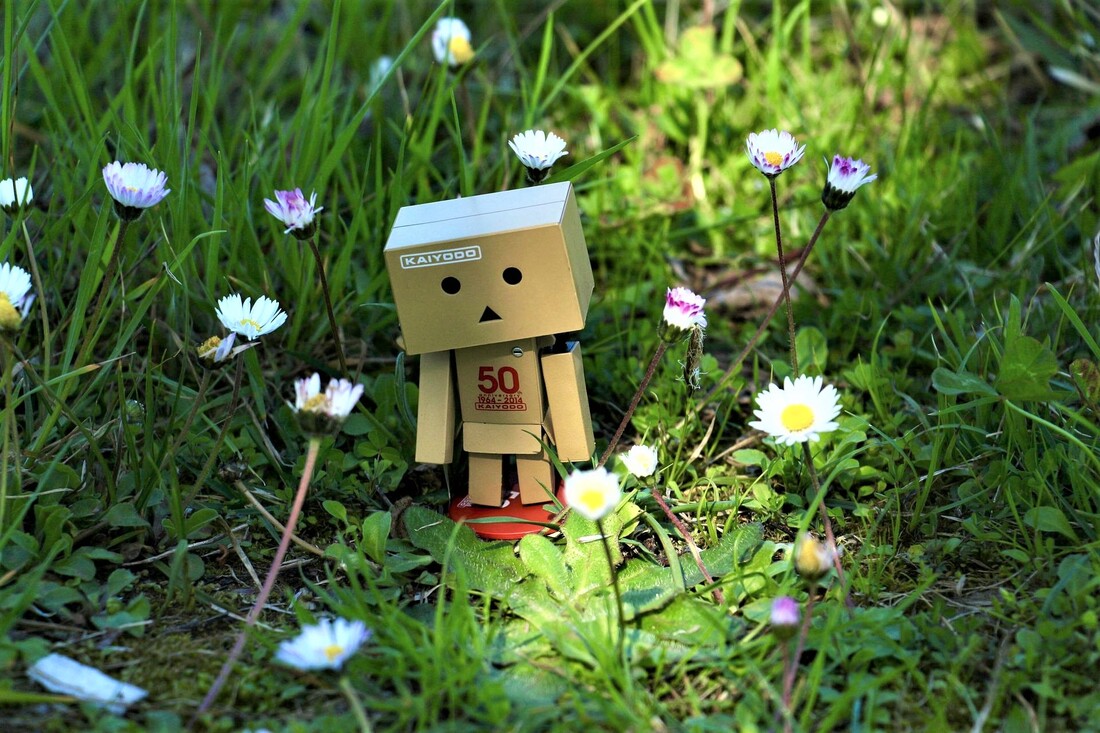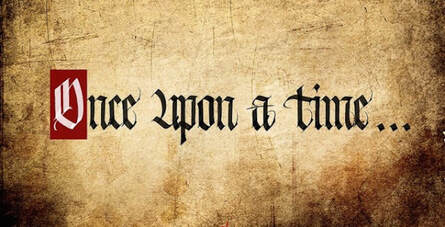|
‘It’s not what you look at that matters, it’s what you see.’ (Henry David Thoreau) Psychologist Albert Ellis, widely regarded as the founding father of what has today evolved into Cognitive Behavioural Therapy, noticed that different people responded differently to what were, on the face of it, very similar situations. Previously, you might have heard, ‘Person X feels Y because Z happened’. It assumed a direct causal relationship between emotions and events. Ellis’ observations challenged this, proposing that something significant was missing in the equation. After all, if this assumption were true, we could expect that everyone should feel the same way in circumstance Z. Curious about this, Ellis concluded that the critical differentiating and influencing factor that lays between emotions and events is belief. It’s what we believe about the significance of an event that affects most how we feel in response to it. Here we have person A who hears news of a forthcoming redundancy with fear and trepidation. He believes it will have catastrophic financial consequences for himself and his family. Person B receives the news with positive excitement. She believes it will provide her with the opportunity she needs to pursue a new direction in her career. Drawing on this insight, organisational researchers Lee Bolman & Terrence Deal proposed that, in the workplace, what is most important may not be so much what happens per se, as what it means. The same change, for instance, could mean very different things to different people and groups, depending on the subconscious interpretive filters through which each perceives it. Such filters are created by a wide range of psychological, relational and cultural factors including: beliefs, values, experiences, hopes, fears and expectations. This begs an important question: how can we know? Hidden beliefs are often revealed implicitly in the language, metaphors and narratives that people use. To observe the latter in practice, notice who or what a person or group focuses their attention on and, conversely, who or what appears invisible to them. Listen carefully to how they construe a situation, themselves and others in relation to it. Inquire in a spirit of open exploration, ‘If we were to do X, what would it mean for you?’; ‘If we were to do X, what would you need?’ This is about listening, engagement and invitation. Attention to the human dimension can make all the difference.
18 Comments
‘The question is: how to ensure a healthy life-life, work-work and life-work balance?’ It felt like losing the plot. Spinning plates isn’t unusual or new yet, as a freelancer, the tell-tale signs were beginning to show. I met with my coach, Sue, to re-ground myself and my work before, like some scene from a Greek wedding, plates began to fall and smash in pieces around me. Sue asked me, ‘If you were to conduct an appraisal of your life and work for the past 12 months, what would the highlights be? How would you rate your life and business health and performance?’ My mind immediately went blank. I had allowed myself to become so busy that the year was a total blur. So, I sat down that evening, took out my diary and created a simple summary. I discovered to my surprise that I had worked with people from 150 organisations (charities; NGOs; churches; public sector, e.g. social services, health, education, police); from 35 countries; 60 coaching sessions; 30 training workshops; 25 action learning set meetings; written 25 articles and blogs; provided ad hoc TESOL support for refugees and asylum seekers; and, by God’s amazing grace and the generosity of family and friends, sent £23k in support to the poorest and most vulnerable in the Philippines. Strikingly, until I did this review, I had no idea. I had lost sight and sense of the wood in the midst of the trees. So, Sue asked me next what I enjoy most about this kind of work-life that I choose to live. I responded, ‘A sense of purpose as a follower of Jesus – and freedom.’ She came straight back with a challenge: ‘Where, for you, is the boundary between freedom and chaos?’ That hit the nail on the head, hard. Freedom is, for me, tied up closely with choice. I was at risk of becoming reactive, falling backwards. I needed to regain my balance, my grounded stance, to be truly free to choose again. Sue offered a suggestion. ‘How would it be if you were to set aside periodic ‘Creating Freedom’ days in your diary – to do those things (apart from your work) that you find life-giving and will help keep you grounded; or that will drain away your life and perspective if you don’t do them?’ That was a great insight and idea. That evening, I marked out spaces in my calendar for silent prayer, physical exercise, time with family and friends, holiday breaks; and for doing the headache-inducing financial and administrative parts of my life-work that I would otherwise procrastinate over or subtly avoid. That was my confession and solution. How do you ensure a healthy sense of purpose, perspective and priority in your own life and work? My daughter is a guinea pig. This afternoon in the bright sunshine, I invited her to take part in an experiment. First, we stepped out into the street and, gesturing to a line of cars parked at the roadside, I asked, “If you were to buy a car, what colour would you choose, or definitely not choose?” She answered, “I’d love a white car.” “OK,” I replied, “let’s go for a walk into town and back. Your task is to count every white car that we pass. If you have the same number as me when we get back here, I will give you £10. How does that sound?” She grinned and willingly agreed.
An hour later, we stopped back where we had started and I asked her, “So, how many red cars did you see?” She looked at me blankly. “I didn’t see any red cars. I counted 206 white cars.” In fact, we had passed 93 red cars, yet she had been so focused on the white cars that she hadn’t seen a single one. This simple experiment illustrates an important psychological phenomenon known as selective attention: “The ability to pay attention to a limited array of all available sensory information…a filter that helps us prioritize information according to its importance.” (Bertram Ploog, 2013). Gestalt psychotherapist Geoff Pelham comments that, in any given relationship or situation, we notice who or what matters most to us (The Coaching Relationship in Practice, 2015). This idea of who or what matters most reflects beliefs, values and emotions. In this exercise, my daughter was influenced and motivated by her beliefs (that this experiment would serve some useful purpose), values (the prospect of a £10 reward) and emotion (her choice of a colour she likes). These factors combined to ensure concentration on a task (counting white cars) that required selective attention. Why is this insight significant in our work with people? The principle extends beyond literal-visual perception to deeper psychological processes too. Our beliefs, values and emotions subconsciously influence our focus and act as filters. We construe personal-shared narratives based on what we perceive. Such narratives appear to us as-if reality, as-if totality, and often without any awareness of who or what we have excluded. As such, narratives always point to and reveal, implicitly, who and what matters most to a person, group or culture, rather than to a definitive account of reality per se. A key question is, therefore: who or what are we, and others, not-noticing? If we can enable a shift in perception, a re-shaping of a narrative, what then becomes possible? Interested to do further reading in this area? See: The Art of Looking: Eleven Ways of Viewing the Multiple Realities of our Everyday Wonderland. You are what you eat. That’s what I read on social media anyway, particularly during vegan January (in the UK). We could propose alternatives: You are what you think; or, You become what you do. There’s an idea in psychology that we don’t really know who we are until we expose ourselves to different situations, or find ourselves in them, then observe what we think, feel and do. We may discover, with surprise, that we are quite different to how we had imagined ourselves to be. Another idea is to think of an idea, an approach, and then act on it as if it were true. It’s as if I’m choosing in advance who I will be, how I will behave, how I will respond. So, for instance, if I’m facing a presentation where I lack confidence, I can stand up straight, tell myself I feel incredibly confident, create an image in my mind of being incredibly confident, then act that out, like a role play, until it becomes real and normal for me. It’s about breaking default patterns and creating new ones. I’m reminded here of a biblical principle: ‘Be transformed by the renewing of your mind.’ I’m limited or changed by what I believe and act on, by faith, as possible – in this case, with God. Richard Bach in his philosophical allegory, Illusions: ‘Argue for your limitations, and they are yours.’ Henry Ford: ‘Whether you think you can or you can’t, you’re right.’ This isn’t positive psychology on steroids. It’s an acknowledgement of the profound relationship between thinking, feeling, experiencing possibility - and hope. A goal of leadership, OD, coaching and training is to tap into the power of imagination, to create and release potential by paying attention to what people think, believe, hypothesise, assume, notice (and not-notice), the deeply personal and cultural narratives they tell themselves and each other – and to experiment with divergence, disruption, dissonance and change. You can because you think you can: When have you adopted this idea? How did you do it? What difference did it make? Are you ready to challenge and stretch your thinking and practice, to open up and create fresh possibilities and opportunities? Get in touch! [email protected] 'The brain is constantly searching for patterns to make sense of its experience. Inside your brain is the story of you.' (Nick Marson) We all have a story. As we look back over our lives, some people, relationships, events and experiences really stand out. Everything else fades out of memory, as if into an invisible backdrop. We subconsciously draw lines between those things that stand out to us, like dot-to-dot, and the picture that emerges becomes, for us, our life story. In this sense, the story is always a summary, an edited version, a glimpse. What stands out is often that which carried strong emotional content for us, or represented who or what really mattered to us at the time, or resonates deeply in some way with who or what really matters to us now, or with how we are feeling now – often out of awareness. In this way, the story-past we tell ourselves may well reveal someone or something important about our story-now. A story is one possible construct-configuration. Imagine, for instance, if we were to work with a client in such a way that raises the not-noticed into view, or that enables them to explore the same people, relationships, events and experiences from different vantage points, or to surface and evaluate the underlying hopes, fears, beliefs, values and cultures they could signify. What then becomes possible? How can I help you work with your story? Get in touch! [email protected] 'Beware the stories we tell ourselves.' (Brené Brown) In fields of psychology such as TA (transactional analysis) and Gestalt, there’s an idea that, as we look back over our lives, we only notice key events that stand out to us as in some way significant. We don’t notice everything else. The events that hold our attention from our past are often those that we consider pivotal moments or experiences for us and that still carry emotional resonance. We join the dots between the events and, for us, the narrative that emerges becomes our ‘life story’. (If you want to try this out for yourself, pause for a moment, take a sheet of paper and draw a line that, in some way, represents your life. Some people use an image of, say, a river as the line. Now mark key relationships, moments, events or experiences in your life on the line. You may want to draw these as, say, high points or low points – or as graphic images. When you are finished, tell yourself or someone else the story that has emerged. Notice how the story sounds and feels.) This ability to create patterns and to tell stories provides a sense of continuity and coherence and enables us to make sense of our lives. Instead of recalling multiple random events, we experience life as journey. It’s like how we hear music as melody or flow, not as disconnected, separate notes. We do the same in teams, groups, organisations and cultures. We notice some things, don’t notice other things and create narratives based on what we see, believe and experience as significant. Yet a story is necessarily selective. What now appears as true and coherent to us is one possible narrative, one version of events, one way of making sense of things. Furthermore, the more self-evident the story appears and feels to us, the greater the risk is that we are trapped, like Alice, in our own Wonderland. The stories we tell ourselves influence and reinforce what we notice and not-notice now, what sense we make of it, how we feel and how we anticipate-respond to the future. So how to use these insights when working with clients? 1. Notice how a client depicts their issue, relationship or situation. What story are they telling themselves? How are they feeling as they do it? 2. Explore what they are not-noticing, what they are assuming, who or what is not featuring in the story, how the same facts or perceptions could be configured differently. 3. Enable them to experiment creatively with alternative stories to raise fresh awareness, insight and possibilities into view. Gone are the days when we could think of ourselves, our teams and our organisations in splendid isolation. We now discover, abruptly at times, that everything is interconnected, everything is interdependent. We see impacts of global markets on domestic markets and vice versa. We see impacts of national and international policy on local people. We see sudden, unexpected changes that come out of nowhere, traceable only in retrospect, that dramatically shape our lives and work.
In the third sector where I’ve spent most of my professional life, we used to think of, say, human rights, international development and environmental issues as completely separate. We now see them as integrally related. Make a change in one area and it impacts on people and communities in another area - or in another part of the world. We can’t always see the connections but we can certainly feel them. This makes the world more complex, less predictable, less certain. A pervasive atmosphere of complexity and uncertainty can evoke personal, social, economic and political anxiety. Leaders and ideologies are emerging across the globe that offer simplistic solutions, often at the extremes, that create a comforting illusion. They may help us sleep more peacefully, live more purposefully. Yet they ignore, dismiss or suppress aspects of reality that don’t fit their simple narrative. To break free from this, we must learn to surface and live with uncomfortable truths. A stark example: witness the rhetoric in the UK and other Western nations this year in the face of unplanned, large-scale migration into Europe. Social media is filled with heated debate. ‘They’re all helpless refugees – rescue them!’ vs ‘They’re all terrorist sympathisers – reject them!’ It poses an either-or, black-white choice. To say, ‘It’s complicated. It calls for a sophisticated response’ sounds like a cop out, a refusal to take sides, a stance devoid of passion, a betrayal of a cause. So we find ourselves facing an existential crisis, created and fuelled in part by a perfect storm of influences. These include: spread of Islamic extremism, growth in right/left wing nationalism, intolerant illiberal liberalism, gross economic inequality, unprecedented global awareness via the internet, powerful social media, more failed states, huge displacement of people, alarming climate change. It can feel perplexing, confusing, debilitating. How to take a stance in the midst of all this? Adrian Spurrell (Synapse Solutions), my professional mentor, has been a persistent voice of challenge and support this year. ‘We can be driven by fear or by hope. Choose hope.’ It reminds me of hope in the Christian gospel too – a faith I experience as real – when we affirm the birth of Jesus Christ. It’s a mysterious faith that holds onto hope, is held onto by hope, often in the midst of hope-lessness. May we know peace and hope this Christmas time and the courage to stand in 2016. |
Nick WrightI'm a psychological coach, trainer and OD consultant. Curious to discover how can I help you? Get in touch! Like what you read? Simply enter your email address below to receive regular blog updates!
|









 RSS Feed
RSS Feed